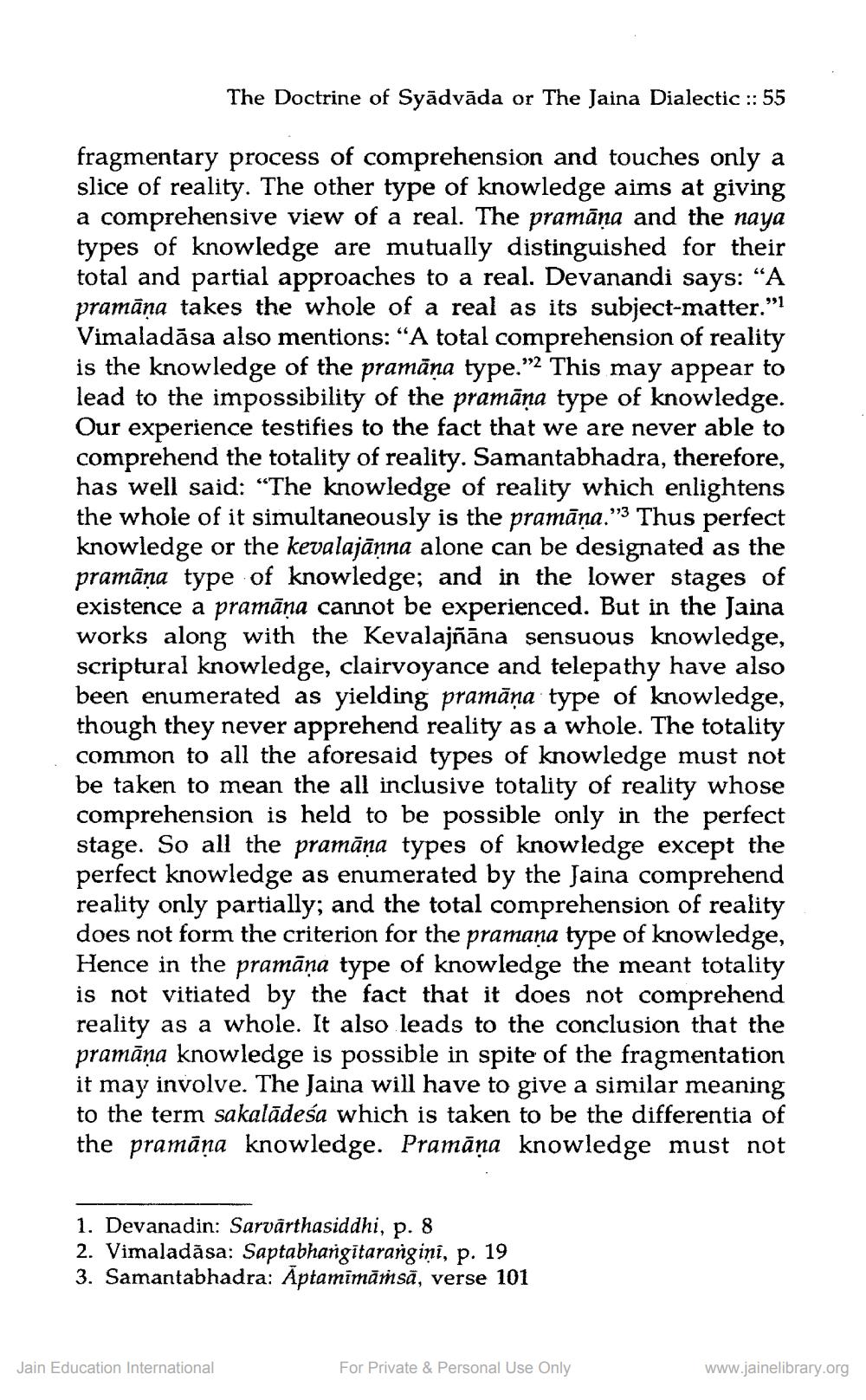________________
The Doctrine of Syādvāda or The Jaina Dialectic :: 55
fragmentary process of comprehension and touches only a slice of reality. The other type of knowledge aims at giving a comprehensive view of a real. The pramāna and the naya types of knowledge are mutually distinguished for their total and partial approaches to a real. Devanandi says: “A pramāna takes the whole of a real as its subject-matter." Vimaladāsa also mentions: “A total comprehension of reality is the knowledge of the pramāna type.” This may appear to lead to the impossibility of the pramāna type of knowledge. Our experience testifies to the fact that we are never able to comprehend the totality of reality. Samantabhadra, therefore, has well said: “The knowledge of reality which enlightens the whole of it simultaneously is the pramāņa."3 Thus perfect knowledge or the kevalajāņna alone can be designated as the pramāna type of knowledge; and in the lower stages of existence a pramāņa cannot be experienced. But in the Jaina works along with the Kevalajñāna sensuous knowledge, scriptural knowledge, clairvoyance and telepathy have also been enumerated as yielding pramāņa type of knowledge, though they never apprehend reality as a whole. The totality common to all the aforesaid types of knowledge must not be taken to mean the all inclusive totality of reality whose comprehension is held to be possible only in the perfect stage. So all the pramāna types of knowledge except the perfect knowledge as enumerated by the Jaina comprehend reality only partially; and the total comprehension of reality does not form the criterion for the pramana type of knowledge, Hence in the pramāņa type of knowledge the meant totality is not vitiated by the fact that it does not comprehend reality as a whole. It also leads to the conclusion that the pramāna knowledge is possible in spite of the fragmentation it may involve. The Jaina will have to give a similar meaning to the term sakalādesa which is taken to be the differentia of the pramāna knowledge. Pramāna knowledge must not
1. Devanadin: Sarvärthasiddhi, p. 8 2. Vimaladāsa: Saptabhargitarangini, p. 19 3. Samantabhadra: Aptamimāṁsā, verse 101
Jain Education International
For Private & Personal Use Only
www.jainelibrary.org




